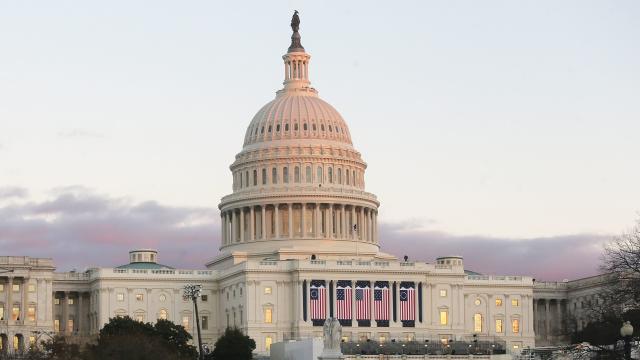The Senate cleared a bill late on Tuesday, the Music Modernisation Act, that will dramatically restructure the way royalties are handed out to artists and others involved in the creation process—although it did so under heavy opposition from satellite and digital broadcasting services, namely Sirius XM and Music Choice.
According to Billboard, the legislation passed with unanimous consent in the Senate after previously passing the House in a unanimous 415-0 vote, with only reconciliation procedures between differing versions of the bill remaining. The bill was the result of a brokering process between songwriters and publishers on the one side and digital music companies that now collect the majority of revenue like Spotify, Apple, Amazon, and Pandora on the other, with the end result being a simplified process that should offer better royalty payouts to content creators. USA Today writes:
The legislation creates a new music licensing organisation, run by publishers and songwriters, that will be in charge of identifying a composition’s copyright owners and paying them the royalties they are due. The Music Modernisation Act also creates a new standard for the rate-setting court to use to determine the fair royalty rate songwriters should be paid.
… Ultimately, songwriters and publishers reached a deal with the digital music companies and the legislation was put on a fast track to becoming law. U.S. Rep. Bob Goodlatte, R-Virginia, introduced the bill last month, also adding provisions that will pay artists digital royalties for older songs played on internet radio. The bill also codifies paying producers and engineers digital royalties.
That last part about producers (the Allocation for Music Producers Act) is notable because, as the Verge noted, producers have never so far been mentioned in copyright law and have had to carve out their payments from their own deals with performers. The producer and engineer provisions would also allow for far larger payouts in cases such as, say, artists purchasing beats they discovered on services like Soundcloud and then hitting it big with a subsequent track.
Sirius XM’s opposition to the bill may have generated some bad blood in the industry. The satellite radio and digital music service claimed that the CLASSICS Act portion of the bill, which makes them legally responsible for paying for pre-1972 recordings (as they do for post-1972 ones), unfairly advantaged traditional radio networks that don’t pay royalties for master recordings at all. After a group of 150 “musicians and industry professionals” threatened to boycott Sirius XM if the bill tanked, the company released an open letter claiming there was “nothing hidden or underhanded” going on, Billboard wrote. Grudges may linger, though as the Tennessean wrote, Sirius XM did get a consolation prize:
In an 11th hour concession to SiriusXM, the bill was amended to delay the implementation of the new rate-setting standard for several years until the next time a federal court determines the new rate for the internet radio company.
After reconciliation, the law will now go to President Donald Trump for his signing. He is not expected to oppose it.
“We are an important step closer to the adoption of this landmark copyright reform legislation,” Nashville Songwriters Association International President Steve Bogard told USA Today. “I’ve seen too many of my colleagues give up writing songs professionally because of unfairly low streaming royalties and other changes in the era of digital music delivery. The MMA gives us tools to move toward better compensation from streaming companies, while giving songwriters and music publishers control of digital mechanical music licensing.”
“Songwriters have suffered long enough and this bill will allow them to be paid fairly by the streaming companies that rely on their work,” National Music Publishers Association board chairman Irwin Robinson told Billboard. “We got to this point because of the advocacy of hundreds of music creators who rallied behind the MMA and who will drive the future of the music industry.”
